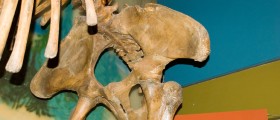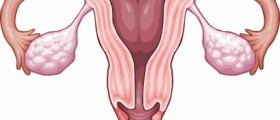Hi. I am having the same problems: the pressure, pain, and etc. I was given a round of antibiotice, but its not working. When I drank 100% cranberry juice, it worked for a day (until I ran out). I am waiting for my test results. Here is some research that I found on the net under "pelvic pressure" Below is interesting, but I have to see what is really my problem, and I will let you know Pelvic Support Problems (from American College of obstetricians and gynecologists) Many women's pelvic organs change as they age. They may have a feeling of pelvic pressure or heaviness. It may feel like "something is falling out of the vagina." These symptoms may be caused by pelvic support problems. Although these problems may begin with childbirth, women may notice them even more as they age. The Pelvic Organs The parts of the body affected by pelvic support problems include the urethra and bladder, the small intestine, the rectum, the uterus and the vagina. The pelvic organs are held in place by three types of support: 1. Layers of connecting tissue called endopelvic fascia 2. Thickened parts of the fascia called ligaments 3. A paired group of muscles that lies on either side and around the openings of the urethra, vagina and rectum When the tissues that support the pelvic organs are stretched and damaged, the organ that they support may drop down and press against the wall of the vagina. This causes a bulge. Causes The main causes of pelvic support problems are pregnancy and childbirth. However, pelvic support problems can occur in women who have never had children. Symptoms The symptoms of pelvic support problems depend on which organs are involved. They can cause minor discomfort or major problems in the way the organs work. Symptoms include: • Feeling of pelvic heaviness or fullness, or as though something is falling out of the vagina • Pulling or aching feeling in the lower abdomen or pelvis • Leakage of urine or problems having a bowel movement In severe cases, the pelvic organs may bulge into the vagina. This bulge may stick out of the vaginal opening, where it may be seen with a mirror or felt with the fingers. In some cases, the uterus may stick out through the vaginal opening. Types of Pelvic Support Problems The main types of pelvic support problems and the pelvic organ that can cause bulging are as follows: • Cystocele — bladder • Vaginal vault prolapse with enterocele — vagina and small intestine • Rectocele — rectum • Uterine prolapse— uterus Cystocele A cystocele, sometimes called anterior wall prolapse, occurs when the bladder drops from its normal place into the vagina. Some cystoceles cause urine to leak when you cough, sneeze, lift objects or walk. Small cystoceles are common. In most cases, they do not cause problems with urination and do not need surgery. If a cystocele is causing symptoms, your doctor can suggest ways to relieve them. Vaginal Vault Prolapse With Enterocele Sometimes after hysterectomy (removal of the uterus), the top of the vagina loses its support and drops. This is called vaginal vault prolapse. The degree of prolapse varies. The top of the vagina may drop part of the way into the vagina and remain there, or it may extend part or all of the way through the vaginal opening. Rectocele When the rectum bulges into or out of the vagina, it is called a rectocele. It is sometimes called a posterior wall prolapse. A large rectocele may make it hard to have a bowel movement, especially if you are constipated. Uterine Prolapse When the uterus drops down into the vagina, it is called uterine prolapse. Mild degrees of prolapse are common. They often do not cause symptoms and do not need surgery. Women with more severe forms of this condition often will have a feeling of pelvic pressure or a pulling feeling in the vagina or lower back. The cervix (the opening of the uterus) may stick out from the vagina. This may cause discomfort or problems with sex. Diagnosis Proper diagnosis is key to treating pelvic support problems. However, diagnosis is not always simple because the symptoms of pelvic support problems often are the same as those of other conditions. The exact cause of the problem must be found before the best treatment can be given. Treatment Many women do not need treatment. Some women find symptoms are relieved by exercising, making changes in their diet, keeping their weight under control, not smoking, and avoiding heavy lifting and straining. Medication or use of a device called a pessary also may be helpful. Pelvic support problems sometimes may be treated by surgery. Special Exercises Exercises called Kegel exercises, or pelvic muscle exercises, are used to strengthen the muscles that surround the openings of the urethra, vagina and rectum. Diet You should cut down on caffeine, which acts as a diuretic. Caffeine can be found in coffee, tea and soft drinks. A high-fiber diet may help bowel function and prevent constipation. Medicines There are special medicines that help treat urinary and bowel symptoms. Vaginal Pessaries A pessary may be inserted into the vagina to support the pelvic organs. When a pessary is used, it must be removed, cleaned and reinserted on a regular basis. Surgical Repair Pelvic support problems may be corrected by surgery. The surgery can be done through the vagina or abdomen based on your type of support problem. Finally ... Many women have pelvic support problems. If you have any symptoms, talk to your doctor about them. The right diagnosis and treatment can offer relief. This excerpt from ACOG's Patient Education Pamphlet is provided for your information. It is not medical advice and should not be relied upon as a substitute for visiting your doctor. If you need medical care, have any questions, or wish to receive the full text of this Patient Education Pamphlet, please contact your obstetrician-gynecologist.
Loading...
Loading...
It is not a harsh pain, more of a dull pain in my back and a pressure feeling in my pelvic area.
Anyone familiar with this?
Thanks,
HL
Loading...
Thanks, Another suffering soul.
Loading...
Loading...
Loading...
Loading...
Loading...
Loading...
Loading...
Loading...
Loading...
seams like i m not aloun
i had uncomfy feeling in my left higher abdom asince april this year
doc sad its only my nerves, they did blood tests 2 x, scan on left abdom, all is ok, they didnt check my bowels as i dont have any complains about my bowel movement
so now for 5 days i feel pressure in my anus, like i need go to the toilet, i mobe my bowels ones a day, as normal, but that pressure is terrible, seams like i m giving birth, what can it be?
going to see GP tomorrow, will let you know whaat they sad
please reply with some sugestions and expierience, as i a m so afraid
thanx
T :'(
Loading...
















